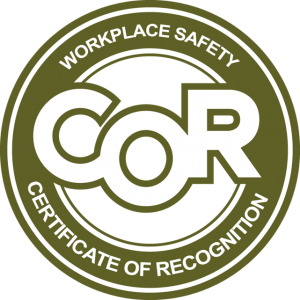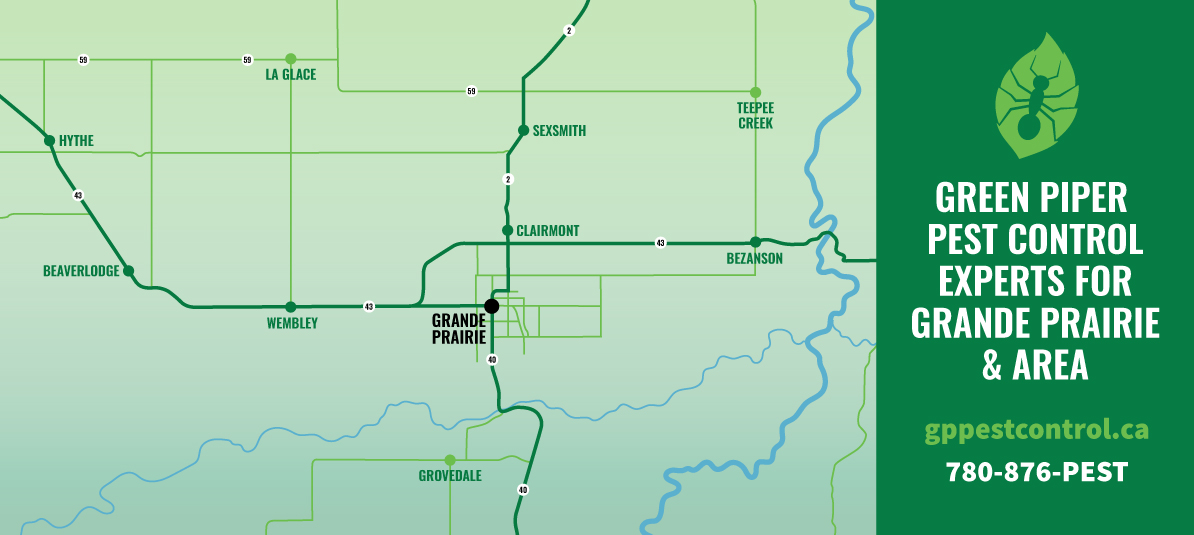Mouse extermination done right by Green Piper Pest Control
The last thing you want to pester you is, well, a pest. From bugs and insects to those rotten rodents, we handle pests of all shapes and sizes.
With deep roots in Grande Prairie and the Peace Region, Green Piper is a local grassroots business that provides environmentally safe and effective pest control solutions to you and the buildings in which you work and live.
Founded by Dan Student, an experienced pest control specialist, his focus for Green Piper is to get the job done. This means providing honest pest control services, keeping you up-to-speed on your problems, and presenting the best solutions possible.
Mice
Nobody wants a mouse in their house, let alone a dozen. Yet, a small infestation of a few mice can quickly overrun your home. Content to live outside in the summer, these rodents often infiltrate your house when the weather begins to cool.
With us, you can go back to sharing your home and business with the people you love, not the pests you don’t.
Mice can spread diseases, so act quickly and call us today. Their high reproduction rate makes it more challenging to control the longer you wait.
Mice may damage food and furniture. The damage to upholstered furniture used for nests or nesting materials can be extensive in unoccupied summer and vacation homes.
Deer mice are rarely a problem in urban or residential areas unless the homes border wooded areas, such as parks. They are common in rural areas and rustic suburban areas.
In urban areas, house mice commonly come in from other structures via utility connections or other parts of the same building. Mice are commonly brought in, in commercial facilities with supplies and equipment. They are a nuisance for damage by gnawing and eating and contaminating stored food.
Health Risks from Mice
Though unlikely to bite humans, mice can harm human health, potentially carrying and spreading diseases through their waste and presence. They’re attracted to warm places with consistent food sources and only require a dime-sized opening to access any potential home.
- Deer mice are structural pests in rural, summer, vacation, outbuilding, shed structures and suburban homes in or near wooded areas. They are of medical concern because they are the primary carriers of hantavirus.
- House mice are also of human health importance as disease carriers.
Do what many farmers do and get a cat if no one in your family has an allergy.
Mouse traps are the next best way to eliminate mice that have moved into your home if you try to remove them yourself. Place mouse traps along walls and behind trash cans.
We recommend you make it easy for yourself and just give us a call.
Voles are smaller than mice with shorter tails, larger eyes, and more petite, less prominent ears. You may find voles or mice in the house. However, it is more likely a mouse than a vole. Mice thrive anywhere with food and shelter. In comparison, voles eat plants, vegetables, berries and insects. Everything in your yard can be a source of food.
Unlike mice, a vole’s damage is usually isolated to the outside. Voles cause damage to young trees and wood features. This chewing causes girdling and results in dieback and even plant death. In gardens, voles gnaw on roots and growth, causing damage to plants. Voles can also create unsightly burrow holes along your walkways.
Mice and voles don’t hibernate. Both rodents are active year-round and look for food wherever they can find it!
Professionally Certified Exterminator
Guaranteeing professional services by certified technicians.
Pest Control Guarantee
Ensuring the pests are gone the first time, or we'll come back.
Greener Pest Control
Effective, environmentally sound pest control solutions.






